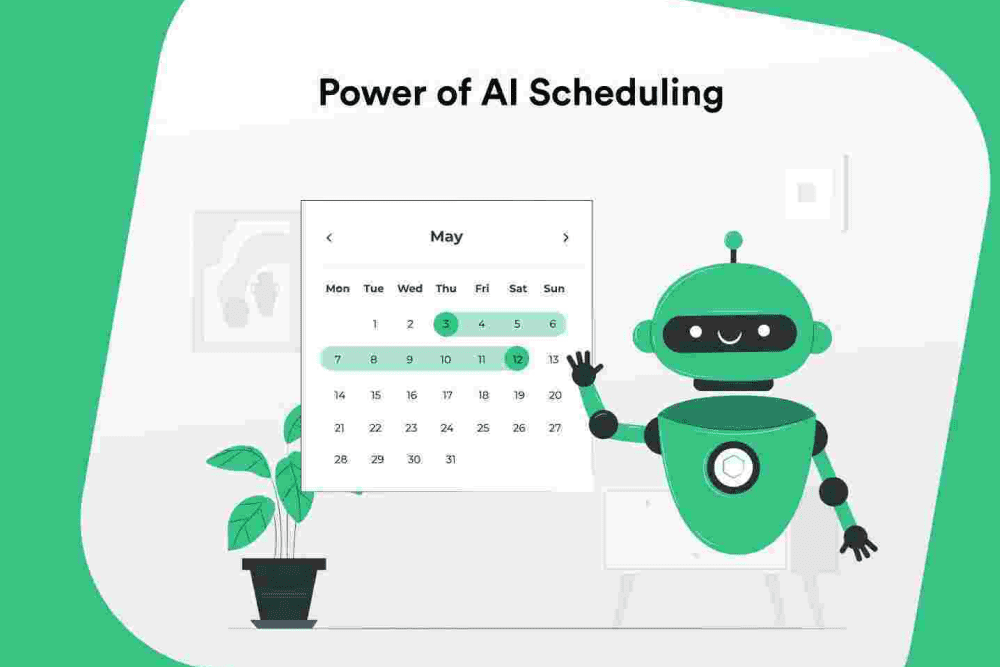
Introduction:
AI is revolutionizing modern appointment booking software by enhancing user experience, optimizing scheduling, and automating routine tasks. By leveraging AI technologies like natural language processing and predictive analytics, businesses can offer personalized, efficient, and seamless booking experiences. AI-driven systems also provide valuable data insights, improve resource management, and ensure security and compliance. As AI continues to evolve, its role in appointment booking will become increasingly crucial for businesses aiming to stay competitive and customer-focused.
The Role of AI in Modern Appointment Booking Software
1. Enhanced User Experience
AI-driven appointment booking software improves user experience by offering more intuitive, responsive, and personalized interfaces. Users can book, reschedule, or cancel appointments through natural language processing (NLP) chatbots, which provide real-time assistance and immediate responses to queries. The AI can understand user preferences and suggest optimal appointment times, making the booking process smoother and more efficient.
2. Intelligent Scheduling
AI can analyze historical data, user behavior, and patterns to predict the best times for appointments. This predictive analysis helps in optimizing schedules, reducing no-shows, and ensuring that service providers are booked during peak times. It can also dynamically adjust availability based on real-time data, ensuring maximum efficiency.
3. Automated Reminders and Follow-ups
One of the significant challenges in appointment-based services is missed appointments. AI can mitigate this by automatically sending reminders via email, SMS, or push notifications. It can also analyze the likelihood of a no-show and send follow-ups or additional reminders accordingly. This reduces the number of missed appointments and improves overall client satisfaction.
4. Personalization and Recommendations
AI enables personalized service by analyzing customer data to understand preferences, habits, and history. The system can recommend services, providers, or times that best match the user’s needs. Over time, as the AI learns more about the user, it can provide increasingly tailored recommendations, improving the overall customer experience.
5. Data-Driven Insights
AI in appointment booking software can generate insights by analyzing large datasets, identifying trends, and offering actionable recommendations. For example, it can track the most popular times for appointments, the most frequently booked services, or common reasons for cancellations. Businesses can use this data to optimize their offerings and improve operational efficiency.
6. Streamlined Communication
AI-powered appointment booking systems can handle routine inquiries and communications, such as confirming appointments or answering frequently asked questions. This reduces the burden on staff, allowing them to focus on more complex tasks. AI can also facilitate communication between clients and service providers, ensuring that both parties are well-informed and satisfied.
7. Integration with Other Systems
AI appointment booking software can easily integrate with other business systems such as CRM, ERP, and billing systems. This seamless integration ensures that all relevant data is synchronized across platforms, providing a holistic view of customer interactions and business operations.
8. Improved Resource Management
AI helps in optimizing resource allocation by predicting demand and adjusting availability accordingly. This ensures that human and material resources are used efficiently, reducing downtime and improving service delivery. For instance, AI can allocate more staff during peak hours or suggest rescheduling options when a service provider is overbooked.
9. Security and Compliance
AI can enhance the security of appointment booking systems by monitoring for unusual activity, protecting sensitive customer data, and ensuring compliance with relevant regulations. It can also automate processes related to data security, such as encryption and access control, reducing the risk of data breaches.
10. Future Trends
Looking ahead, AI in appointment booking software is expected to evolve further, incorporating more advanced machine learning algorithms, voice recognition, and even predictive AI that can anticipate customer needs before they arise. Businesses that leverage these advancements will be better positioned to offer superior customer experiences and stay ahead in a competitive market.
In conclusion, AI is transforming appointment booking software by making it smarter, more efficient, and user-friendly. By automating tasks, providing personalized experiences, and optimizing schedules, AI enhances both customer satisfaction and operational efficiency. As businesses continue to adopt AI-driven solutions, they will benefit from improved resource management, valuable insights, and a competitive edge in the market. The future of appointment booking lies in AI’s ability to anticipate needs and deliver seamless, tailored experiences.
